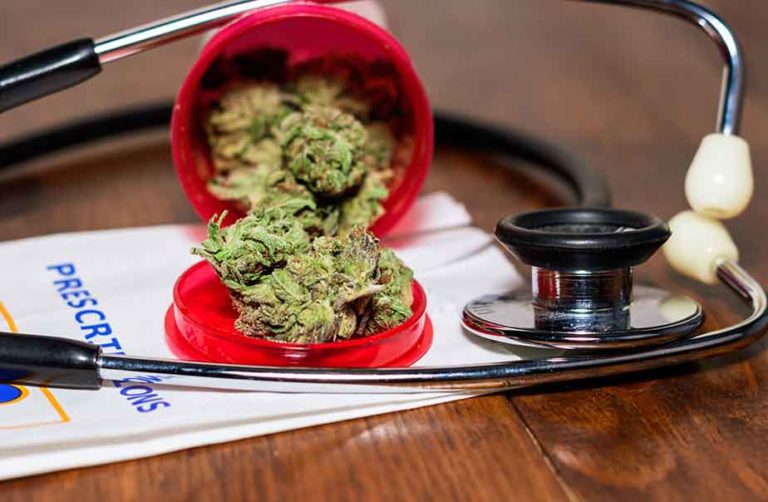
On Wednesday, the North Carolina General Assembly made history hearing testimony from politicians, health professionals, veterans, and activists on medical marijuana legalization.
If passed, Senate Bill 711, the North Carolina Compassionate Care Act, will create a network of dispensaries. They will provide medical cannabis for people with debilitating medical conditions like cancer, epilepsy, HIV/AIDS, and multiple sclerosis. Regulators will also have the authority to add additional qualifying conditions at a later time.
“The purpose of this act is to carefully regulate the use of medical cannabis as a treatment of debilitating diseases,” said Senator Bill Rabon, a lead sponsor of the bill. Rabon spoke at the hearing on Wednesday with North Carolina’s Senate Judiciary Committee.
Patients with qualifying conditions will be able to get a prescription to buy medical cannabis from state-regulated dispensaries.
Thirty-six states already have laws that allow medical marijuana programs to operate within their boundaries. However, the North Carolina bill will have the tightest restrictions in the country.
Testimony From Senators and Veterans
During the hearing, the committee took action on the bill to legalize medical cannabis. They amended it and set it up for approval by the panel in a future meeting.
Rabon is a cancer survivor, and during opening statements on Wednesday, he said that “there’s nothing less compassionate on the earth than to watch a person you love suffering when there’s something that can ameliorate at least that suffering.”
Rabon continued, “it’s a personal thing with me. I don’t see the stigma that some people do. I think it is time to bring this forward. I’m going to see it through as best I can. I owe it to my fellow man.”
After the opening statements, several veterans spoke about how medical cannabis helps them overcome PTSD and injuries sustained during combat after returning from war.
“I have seen both sides of cannabis while working in law enforcement and as a sufferer of chronic pain and PTS due to injuries sustained in service to my country and my community,” Josh Biddicks, a retired police officer and combat veteran, told the committee.
He continued, “I almost became one of the 22 veterans who commit suicide daily in our country. I personally have seen tremendous relief with cannabis as an alternative natural supplement,” he continued. “A cure-all? No. But a natural path to relief from the symptoms, not laying in bed all day on muscle relaxers,” prescribed by Veterans Affairs to deal with various ailments.
The majority of people from the public at the hearing spoke in favor of the bill.
What’s in the Bill?
If it becomes law, the measure will make several changes:
The recreational sale of marijuana will remain illegal in NC, but the bill will establish a new medical advisory board and a commission on cannabis production in NC. Both new entities will be a part of the Department of Health and Human Services.
It will allow ten licenses for suppliers statewide; each supplier can operate four medical marijuana dispensaries.
“If you are a licensee, you are required to essentially manage the ‘seed to sale’ process, Sen. Michael Lee said. “The idea behind only having 10 … licensee’s responsible for ‘seed to sale’ is to really tightly regulate an area that states have done widely different things in.”
Dispensaries will not be able to have large signs like other states. In addition, the bill lays out the guidelines for how dispensaries and packaging can look.
Doctors will need to have a certification to give marijuana prescriptions, and patients will need to follow a detailed process before they can receive medicinal cannabis.
The Judiciary Committee referred the bill to the Senate Finance Committee, Health Care Committee, and Rules & Operations Committee.
The Path Forward to Legalization in NC
The proposed measure will need to make its way through four more committees in the Senate. Then, even though it already had a hearing in the Judiciary Committee, it will need to return for a vote to take place.
If it does pass through all the required committees in the Senate, it will still need to have a floor vote, and then it can head to the House of Representatives.
In the House, it will also need to make its way through various committees. Finally, if it can make its way to a floor vote in the House, it will be on its way to the governor’s desk for a signature unless there are several changes. Lastly, the governor can either sign the measure, send it back for reconsideration, or table it.
A new poll found that many people living in North Carolina would support the legalization of medical marijuana.
Another poll found that 48.1 percent of people support full recreational legalization, while 39.3 percent said they did not support recreational cannabis legalization.
On May 14, the Cherokee tribal council in western North Carolina voted to legalize medical marijuana on tribal lands. Thus, making the Qualla Boundary the first area in North Carolina to allow medical cannabis.
Make sure to check back for more cannabis and hemp-related news.